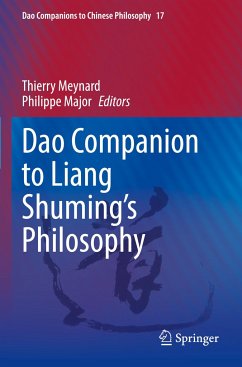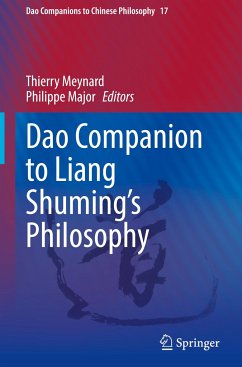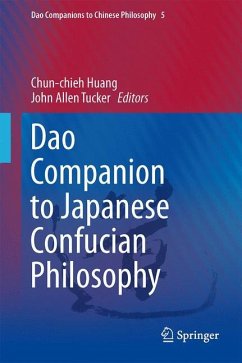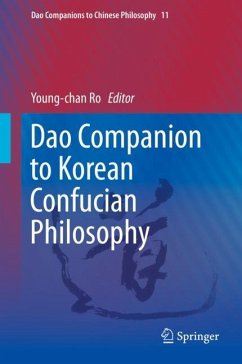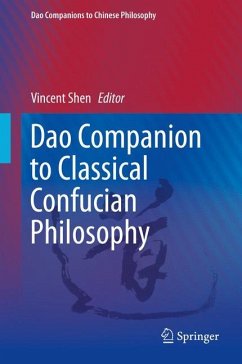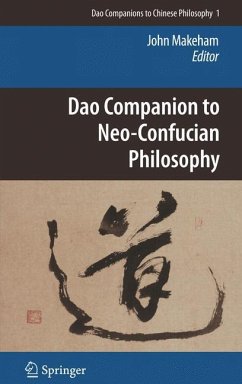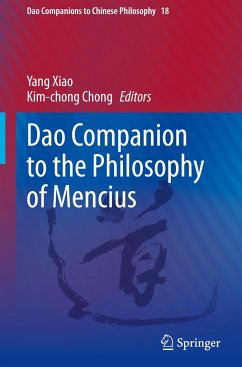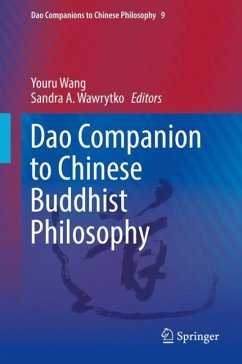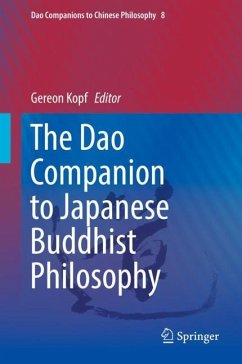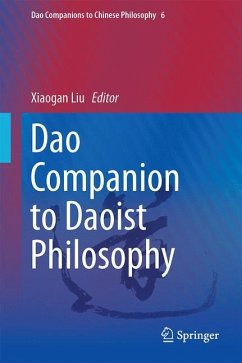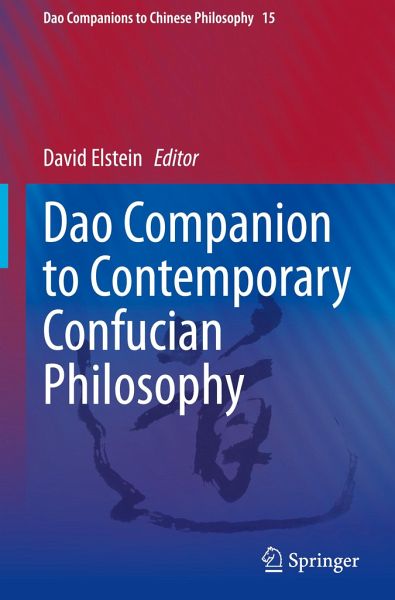
Dao Companion to Contemporary Confucian Philosophy

PAYBACK Punkte
0 °P sammeln!
This edited volume presents a comprehensive examination of contemporary Confucian philosophy from its roots in the late 19th century to the present day. It provides a thorough introduction to the major philosophers and topics in contemporary Confucian philosophy. The individual chapters study the central figures in 20th century Confucian philosophy in China, Taiwan, and Hong Kong, as well as the important influences on recent Confucian philosophy. In addition, topical chapters focus on contemporary Confucian theory of knowledge, ethics, politics, aesthetics, and views of human nature. The volu...
This edited volume presents a comprehensive examination of contemporary Confucian philosophy from its roots in the late 19th century to the present day. It provides a thorough introduction to the major philosophers and topics in contemporary Confucian philosophy. The individual chapters study the central figures in 20th century Confucian philosophy in China, Taiwan, and Hong Kong, as well as the important influences on recent Confucian philosophy. In addition, topical chapters focus on contemporary Confucian theory of knowledge, ethics, politics, aesthetics, and views of human nature. The volume brings together scholars from around the world to provide a sound overview of the philosophy of the period and illustrate the important current debates. Confucian philosophy has been undergoing a revival in China for more than three decades, and this book presents the most significant work of the past century and more. By giving a detailed account of the philosophical positions involved, explaining the terminology of contemporary Confucian philosophy, and situating the views in their historical context, this volume enables the reader to understand what is at stake and evaluate the arguments.





